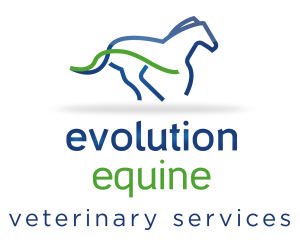Euthanasia and the decision to put your horse to sleep can be a very challenging and distressing event for many horse owners. As horses are living longer than ever before euthanasia is becoming more commonplace as welfare concerns become more apparent.
At Evolution we are always available to provide sympathetic advice and guidance. Our vets will always put your horse’s quality of life first and will advise you on an appropriate plan of action for management of older age horses.
Methods of Euthanasia
At Evolution we offer two methods of euthanasia; lethal injection or shooting.
The lethal injection involves giving the horse a massive overdose of intravenous anaesthetic. This causes unconsciousness before stopping the heart. There is a stage where the horse drops to the ground, and some owners find this distressing. The horse is completely unaware of this as it is completely unconscious at the time. After the heart stops, some muscle twitching may occur for several minutes. This is just the muscles relaxing and is the bodies natural response to death. On some occasions the vet might give the horse some sedation prior to the anaesthetic. This can relax the horse, particularly in unfamiliar surroundings.
Shooting requires a vet to have a gun license. Not all of our vets have these, so it is advisable to let us know if you require this method of euthanasia when making an appointment.
What Happens to my Horse after Euthanasia?
There are several options available for disposal of a horse once euthanasia has been performed.
Cremation can be performed either individually or communally. After an individual cremation you will receive a small casket containing ashes. In a communal cremation the horse is disposed off alongside other horses, but it is not possible to receive any ashes back.
Horses that have been euthanised by bullet may be collected by the hunt and disposed of at the kennels, however this is not possible in horses euthanised by injection or that had an illness.
The final option is to bury your horse. This is possible; however, we advise that owners should contact the relevant authorities in their local area to receive permission before doing this. The horse must be buried at a sufficient depth and at a sufficient distance from any water courses.
Other Considerations
When the vet attends for a euthanasia they will require the horse’s passport to check the animal’s identity.
We do not expect owners to stay for the euthanasia, although you are of course very welcome too. If you believe that you may become very distressed, then we advise that it is a good idea to have a member of family or a close friend also in attendance.
Equine bereavement counselling is also available through the British Horse Society and The Blue Cross.
